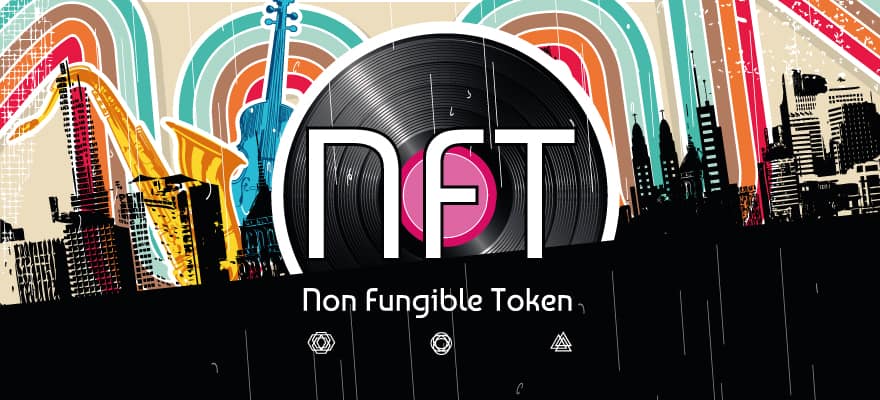The non-fungible token (NFT) boom has caused a wave of new investors and creators to enter the space. It is an exciting time, to be sure. However, the NFT marketplace is still so new that there are not always easy answers to questions that buyers and sellers have.
In the meantime, though, the NFT marketplace is continuing to grow. Are you thinking of buying or selling an NFT? Here are some important things to keep in mind.
What Are NFTs? Why Are Some of Them Worth So Much Money?
What is an NFT? By now, you have probably heard something about the non-fungible token craze. But, just in case you haven't, here is what you need to know: an NFT is a digital collectable that may or may not involve the buying or selling of intellectual property rights. Just as a Pokemon card does not represent the intellectual property rights for Pikachu, most NFTs do not involve property rights.
Therefore, many NFT buyers and sellers are left to wonder what exactly it is that they are buying and selling. However, this has not prevented investors from entering NFT markets in big ways. Throughout the month of March 2021, a number of high-profile NFT sales netted hundreds of millions of dollars.
However, Because the technology is so new, there are certain elements of it that are extremely inefficient. For example, NFTs created on the Ethereum network charge high transaction fees; NFT creation on Ethereum is also said to have a large carbon footprint. Additionally, there are concerns about fraud in the NFT world.
As a result, a number of potential investors and NFT creators have written off non-fungible tokens, at least, for the moment.
“NFTs Are Becoming an Accepted Medium of Exchange of Unique Digital Assets, Whether These Be Digital Art, Music or Movies.”
However, as the technology improves, NFTs will continue to have their days in the sun. Avron Goss, Chief Security Officer of Royale Finance, told Finance Magnates that: “both buyers and sellers should know NFTs are an important component of decentralization.”
“They provide an immutable and transparent record of ownership of a unique asset which can be seamlessly traded between buyers and sellers globally without the need for an intermediary or expert to verify authenticity,” Goss explained. “What it looks like at a global level and what buyers and sellers need to keep in mind is NFTs are becoming an accepted medium of exchange of unique digital assets, whether these be digital art, music or movies.”

Avron Goss, Chief Security Officer of Royale Finance.
Moreover, Goss pointed out that new use cases for NFTs will continue to be born over time: “NFTs are more than simply art or music in a secure wrapper. Their use can be extended to a utility on platforms,” he said.
“For example, the NFT Queen of Queens Royale Rarity is not only a limited edition digital artwork, but it also confers drops of ROYA tokens on the holder and provides a discount on staking lots on the Royale platform. NFTs will rapidly be a way of not only buying and selling art and media but will become a way of trading beneficial value.”
Technical Problems Are Still a Feature of the NFT Universe
There are some important things to take into consideration before entering into NFT markets as either a buyer or a seller. Edmund McCormack, Founder and CEO of DChained, told Finance Magnates that: “for buyers and sellers of NFTs, there are several challenges that could impact the value and potential return of their investments.”
These include “the impact congestion and transaction (or ‘gas’) fees often resulting from limited windows when NFTs are available for transactions,” and “high-frequency trading systems (or ‘bots’) that stifle fair trading between buyers & sellers by manipulating prices and available supply.”
McCormack said that, slowly but surely, these problems are being addressed. Some NFT platforms have decided that the method of addressing these issues in the short term is to introduce “‘white lists’ to participate in a private or public sale.”
“Not only has it increased overall engagement with their projects, as participants must fulfil a series of requirements to qualify for a potential spot on the ‘white list’, but it has significantly reduced the volume of ‘bots’ and congestion to purchase their tokens,” he said. “Equally important, the involvement of the project's founding team, ranging from communication on the ‘white list’ through the official public listing, has helped create a booming investor marketplace.”
Non-fungible tokens buyers and sellers should also be sure that what they are purchasing or peddling is the 'real thing'. McCormack explained to Finance Magnates that: “it's paramount to verify that the NFT that you're purchasing is authentic and sourced from the designated limited supply.”
“A core tenant of NFTs is that they gain their value from scarcity; however, it's important to remember that anyone can mint an NFT on blockchains and then promote their work - or pay an influencer on social media - to get you to buy their counterfeit. It's a practice that we've seen when Blockchain projects offer their tokens for public listing, which has led many of them to specify the contract address for their token so investors do not get fooled by ‘knock-offs.’”

Edmund McCormack, Founder and CEO of DChained.
What Do You Need to Know before Buying an NFT?
Gunther Sonnenfeld, CEO of the non-fungible token digital rights management platform, RAIR, advised that: “buyers should take into consideration their collection criteria. The idea of the NFT is to be a proud owner of an item, and therefore, like any proud collector, one should put thought into the theme, substance and network value of the items purchased through an NFT.”

Gunther Sonnenfeld, CEO of the NFT digital rights management platform RAIR.
NFT creator and trader, Julian Alvarez Silva also told Finance Magnates that buyers should evaluate their reasons for purchasing an NFT: “is it just because you like it, or because it's an ‘investment’?” he asked.
“As an investment, even though it might have great ROI, at the moment there is no history of them maintaining their value over the long term so it's too early to know,” Silva pointed out.
“Most importantly, you need to know how to buy and keep that content work safe, so that in the future, should you choose to sell you can have access to it,” he said. “Then you need to know what you will use that NFT for, how you will store it, and what the market for it is.”
What Do NFT Creators Need to Consider before Selling Their Tokens?
NFT sellers have a different set of factors to consider, particularly if the seller is the creator of an NFT.
Sonnenfeld advised that: “sellers should get an idea of how they want to price their items per the amount they will issue so they don’t price themselves out of the market by setting too low of a price or too high of a price in their first run.”
Juan Alvarez Silva (@kingjulianiam) advised that: “sellers need to consider what the details of their non-fungible token will be, for example, how many copies will be available, what platform they will use to sell their content, and how they will choose to promote it.”
“Furthermore, it is very important that they check the terms of the smart contract attached to their NFT,” he noted. “This will dictate how big or small a commission they will receive with every resale of the said art, if there will be royalties related to licensing their art, and if there can be multiple owners.”
In addition, NFT sellers need to consider how they will fund the transaction fees that are required to create non-fungible tokens, particularly on the Ethereum blockchain. OpenSea.io has an NFT creation model that will put the bill in the buyer’s hands–still, at the end of the day, someone’s gotta pay.
Being Safe in the NFT Universe
However, for both buyers and sellers of NFTs, the most important part of the sales process is due diligence and safety.
Silva told Finance Magnates that: “buyers and sellers alike must put time and practice into understanding your wallet and how to keep it safe.”
“The same way you don’t enter your bank details in random websites, you wouldn’t want to share your seed phrase or private key anywhere,” he wrote.

Oleg Kurchenko, Founder of Binaryx cryptocurrency exchange.
Oleg Kurchenko, Founder of Binaryx cryptocurrency exchange, explained to Finance Magnates that non-fungible token safety is particularly important now when the technology is still relatively new (and therefore, more vulnerable.)
“The biggest technical concern of NFTs is they are as potentially hackable as any other asset online — like your online account or an email,” Kurchenko told Finance Magnates. “Hence, an NFT can be stolen too and if your NFT account is broken and the token is transferred to another account, there is nothing you can do about it.”
“There is no authority like a bank or police, where you can call to complain and real-world laws might not apply in case of blockchain-related disputes. So, the users that own NFTs should take all the responsibility for the safety of their assets.”
What are your thoughts on buying and selling in the NFT space? Let us know in the comments below.


















